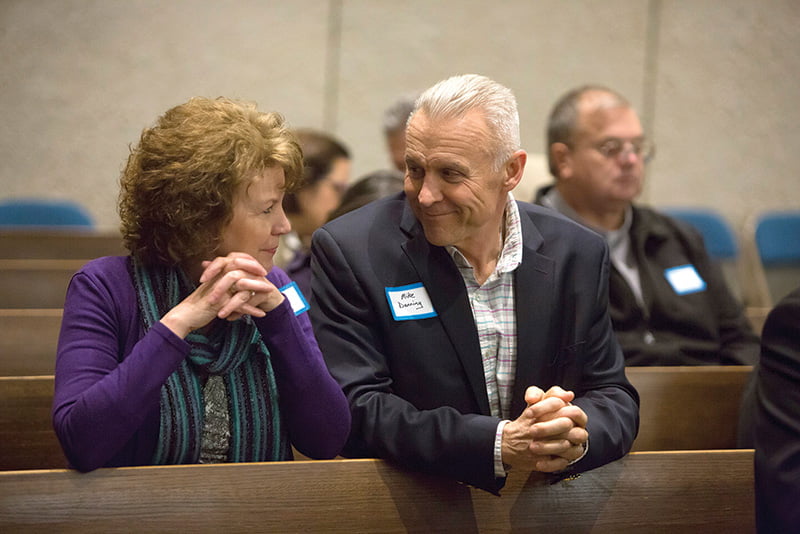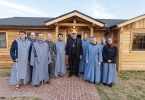
by The Leaven staff
A unique dimension of the permanent diaconate is that the formation and ministry of most deacons takes place in the context of an already busy marriage and family life.
An integral part of discerning this vocation, then, must include prayerful consideration of how diaconal formation and ministry will affect one’s family, as well as candid, ongoing communication with one’s spouse.
Striking the right balance of prayer, family, work and diaconal training can be a real challenge. Even for those who are accepted into the program, the initial call is continually tested during the five years of formation before ordination.
“My intuition has always been that if it’s ‘right,”’ said Leon Suprenant, the co-director of the office of the permanent diaconate for the archdiocese, “the diaconate will strengthen one’s marriage, and one’s marriage will strengthen his diaconal ministry.”
Suprenant recently polled the wives of archdiocesan deacons to test whether his theory was correct.
The overwhelming response of deacons’ wives, he said, was that the five-year formation program, despite the significant time commitment the program required, was a positive experience for them.
Some of them were able to attend many of the formation sessions with their husbands, which helped them grow in their prayer life, as well as their knowledge of the Catholic faith.
Others pointed out that they received the benefit of the classes without having to take any of the tests!
And many pointed to the deep friendships they forged with others on the same journey.
Some, because of family and other responsibilities, were not able to attend the formation events as frequently as others.
Rhonda Gilbert, wife of Deacon Dean Gilbert, was one of those.
“I felt very welcomed whenever I could come to the formation weekends, but not pressured to be there if I could not be,” she said.
And Leah Nguyen, wife of Deacon Stephen Nguyen, said that her husband’s weekends away at formation were difficult, “but we all grew as a family, since we knew it was a sacrifice that we needed to make.”
Tina Allen, wife of Deacon Joe Allen, said that, because of the kids and her job, she was unable to participate much. But she was still proud to bepart of his team of support, and appreciatedhow he “always put his family first” and would typically “share with [her] things he learned in formation.”
But what about life as a deacon’s wife after her husband is ordained?
Once again, the wives’ experience reported very favorably. Many spoke of the positive influence of the diaconate on family life and the family’s prayer life.
For example, Jacque Pfeifer-Moffitt said that her husband, Deacon Mike Moffitt, “has become the spiritual leader of our home. . . . He is definitely leaving our kids and sons-in-law with a deep and rich inheritance.”
Linda Sloan agreed.
“We have a family spiritual leader we are so proud of,” she said. “I know without any doubt that God has his hand over our family and that [husband Deacon Brad Sloan] is where he’s supposed to be.”
While some miss being able to sit next to their husband at Mass, several deacons’ wives, such as Jan Mulvenon and Karen Denning, believe their marriages have been enriched by being able to join their husbands in various ministries. Aracely Slater says that her husband’s diaconal ministry has made her “even more aware of the many needs around us.”
Finally, although a few say they try to “not get in the way” of their husband’s ministry or mind the increased demands on his time, the overarching theme Suprenant heard was gratitude: gratitude for how the Lord has blessed them, their family and the church through their husbands’ ministry.






